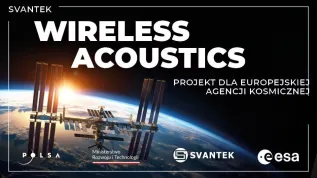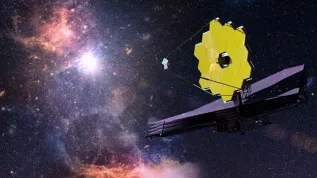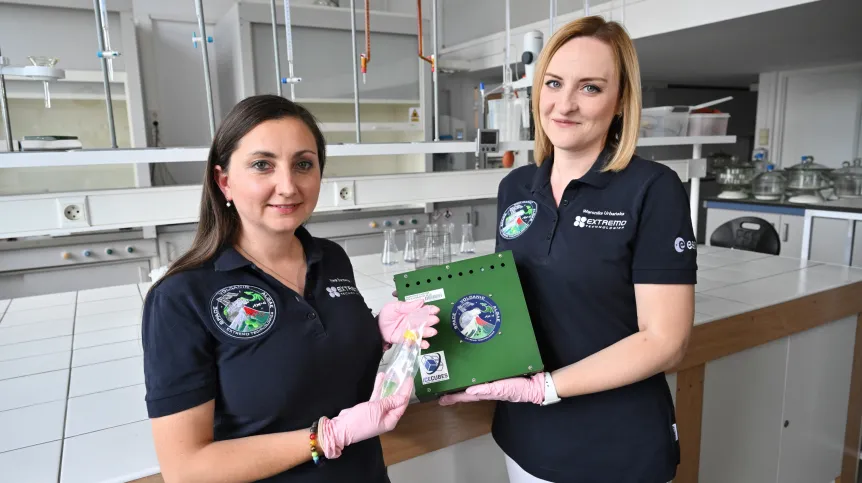
Polish scientists have begun analysing samples of extremophilic volcanic microalgae that were returned to Earth after a stay aboard the International Space Station (ISS) as part of the IGNIS mission.
The research could pave the way for the use of these organisms in space technologies, including raw material extraction on the Moon or Mars.
The algae samples, transported to the ISS by the Ax-4 mission, which included Polish astronaut Sławosz Uznański-Wiśniewski, were presented to the media on Wednesday at the Wrocław University of Science and Technology. After the mission, the samples were returned to Polish research institutions, including the university’s Faculty of Environmental Engineering.
The experiment, known as Space Volcanic Algae, is coordinated by Extremo Technologies and involves scientists from several Polish institutions. The project aims to demonstrate the potential of extremophile microalgae, which naturally grow on volcanic rocks, to survive and function in space.
“The algae live on Earth in an environment that is extreme for humans, and can potentially be used in space technologies,” said Dr. Weronika Urbańska from the Faculty of Environmental Engineering at Wrocław University of Science and Technology.
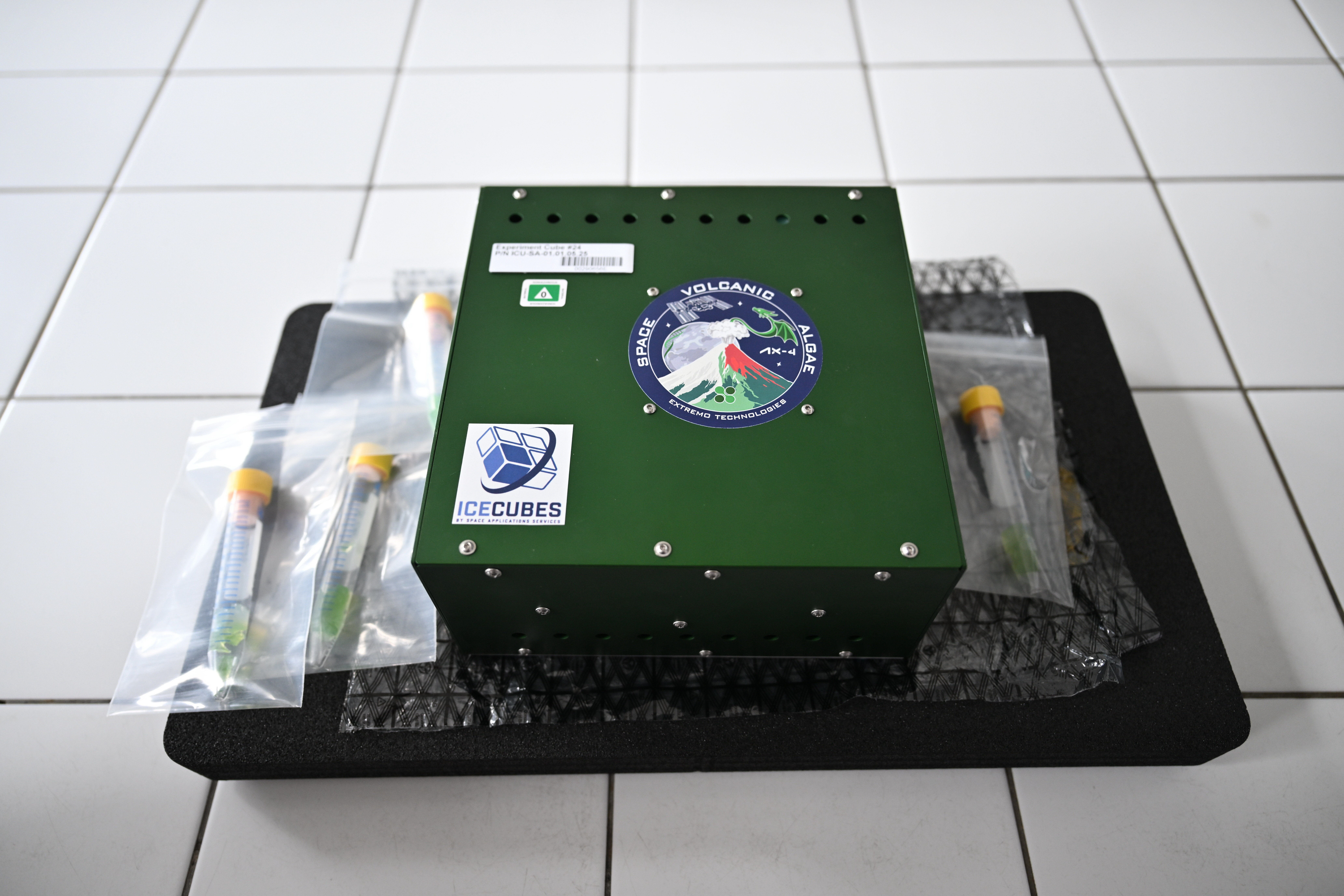
During the press briefing, researchers explained how the algae samples had been stored in a specially designed container that was connected to a scientific module aboard the ISS.
“In the future, these organisms could find applications in space bases, for example, in the extraction of raw materials,” said Urbańska.
Preliminary results already show that the algae survived the mission and were able to produce oxygen in microgravity conditions.
“The oxygen level was an indicator of their ability to survive and adapt to space,” Urbańska explained.
Ewa Borowska, head of the experiment and CEO of Extremo Technologies, outlined the two-part structure of the research.
“The first showed that the algae produced oxygen and were alive, and the second, genetic part was designed to determine whether new metabolites had been created,” she said. “If we know that algae have adapted to space conditions, we also know that they will cope with experiments conducted on Earth — for example, those involving the extraction of heavy metals from lunar and Martian regolith simulants.”
The microalgae used in the experiment require metals for growth, which they naturally extract from volcanic rock. This ability makes them promising candidates for use in future space missions focused on sustainable life support and resource utilisation.
The research team plans to complete analysis of the samples by the end of the year.
“These results will indicate the possible applications of these microalgae; we will learn about their potential for use in space,” said Urbańska.
Scientists from the Medical College and Nicolaus Copernicus University in Bydgoszcz, as well as researchers from the Nencki Institute of Experimental Biology, are also participating in the analysis. (PAP)
PAP - Science in Poland
pdo/ zan/
Gallery (4 images)
-
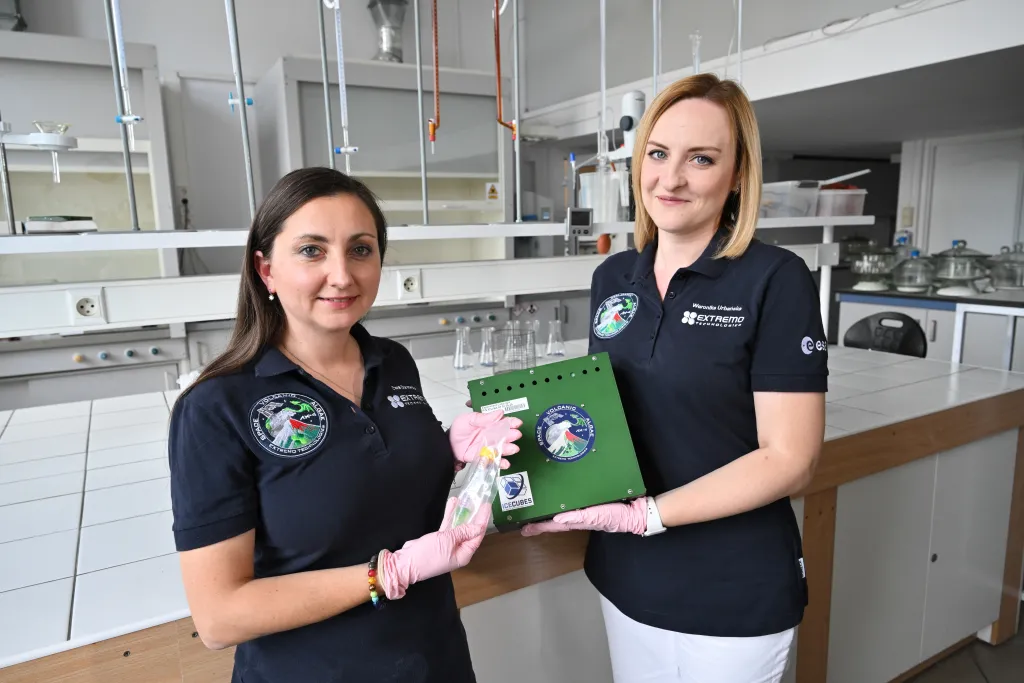 1/4Wrocław, 23.07.2025. Weronika Urbańska (R) from the Wrocław University of Science and Technology and Ewa Borowska (L) from the startup Extremo Technologies at a media briefing at the Wrocław University of Science and Technology laboratories on July 23, 2025. During the event, the researchers presented the samples subjected to experiments in space during the IGNIS mission with the participation of the Polish astronaut Sławosz Uznański-Wiśniewski. (mk/amb) PAP/Maciej Kulczyński
1/4Wrocław, 23.07.2025. Weronika Urbańska (R) from the Wrocław University of Science and Technology and Ewa Borowska (L) from the startup Extremo Technologies at a media briefing at the Wrocław University of Science and Technology laboratories on July 23, 2025. During the event, the researchers presented the samples subjected to experiments in space during the IGNIS mission with the participation of the Polish astronaut Sławosz Uznański-Wiśniewski. (mk/amb) PAP/Maciej Kulczyński -
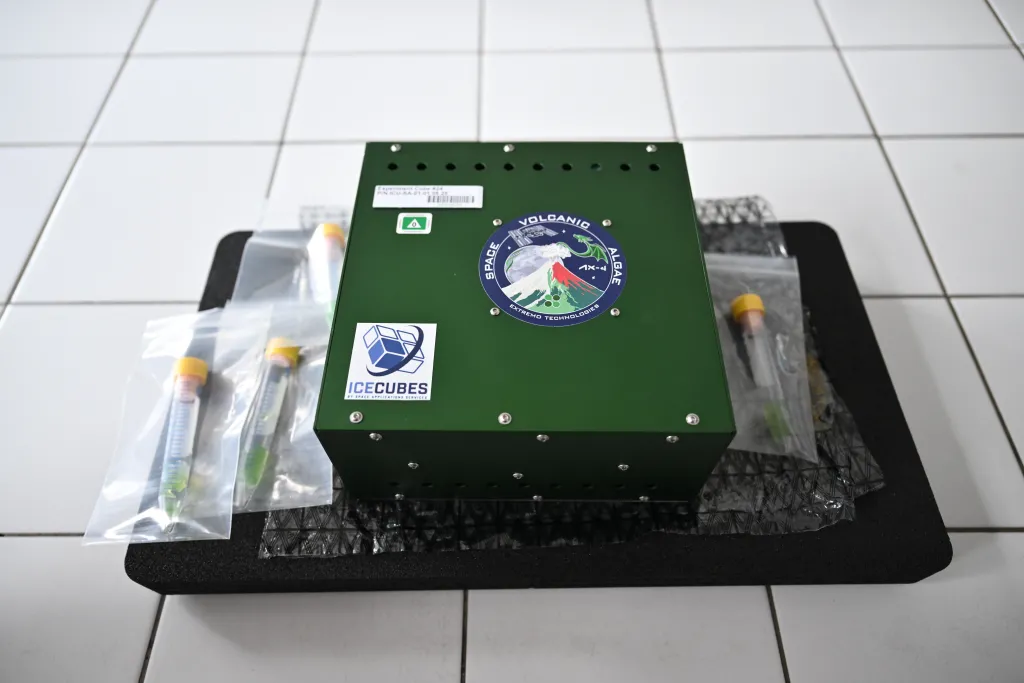 2/4Wrocław, 23.07.2025. Media briefing at the Wrocław University of Technology laboratories. During the event, the researchers presented the samples subjected to experiments in space during the IGNIS mission with the participation of the Polish astronaut Sławosz Uznański-Wiśniewski. (mk/amb) PAP/Maciej Kulczyński
2/4Wrocław, 23.07.2025. Media briefing at the Wrocław University of Technology laboratories. During the event, the researchers presented the samples subjected to experiments in space during the IGNIS mission with the participation of the Polish astronaut Sławosz Uznański-Wiśniewski. (mk/amb) PAP/Maciej Kulczyński -
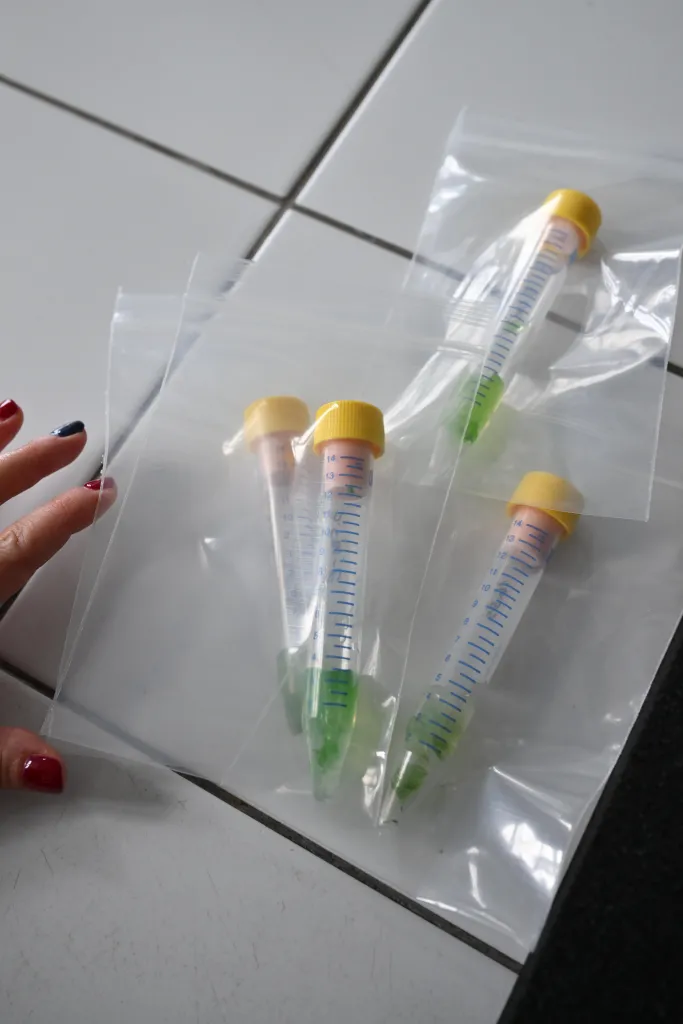 3/4Wrocław, 23.07.2025. Media briefing at the Wrocław University of Technology laboratories. During the event, the researchers presented the samples subjected to experiments in space during the IGNIS mission with the participation of the Polish astronaut Sławosz Uznański-Wiśniewski. (mk/amb) PAP/Maciej Kulczyński
3/4Wrocław, 23.07.2025. Media briefing at the Wrocław University of Technology laboratories. During the event, the researchers presented the samples subjected to experiments in space during the IGNIS mission with the participation of the Polish astronaut Sławosz Uznański-Wiśniewski. (mk/amb) PAP/Maciej Kulczyński -
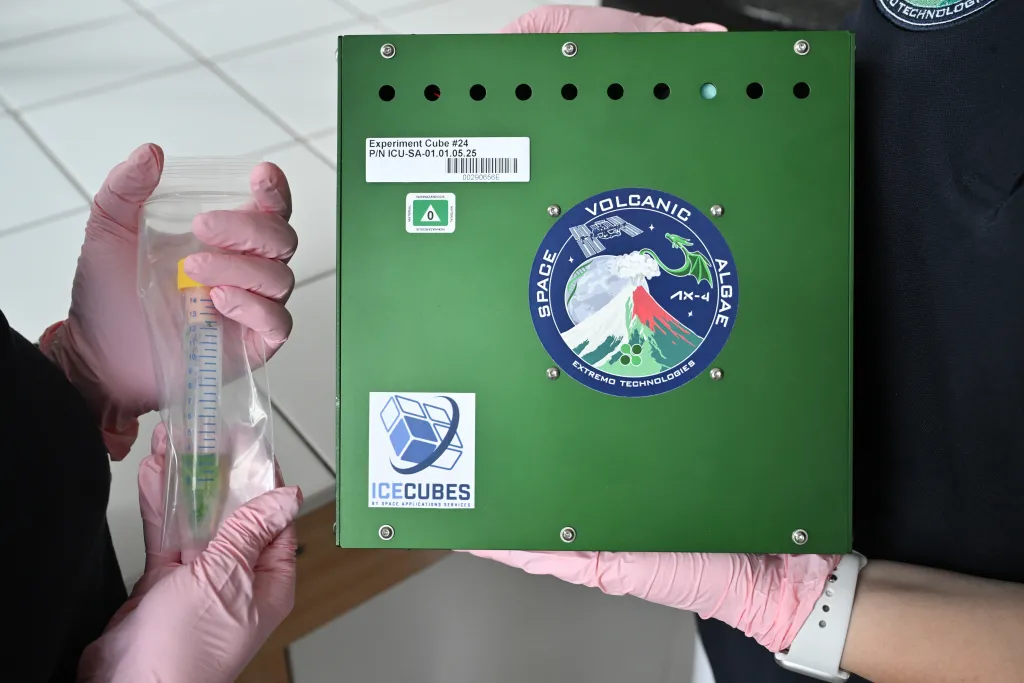 4/4Wrocław, 23.07.2025. Media briefing at the Wrocław University of Technology laboratories. During the event, the researchers presented the samples subjected to experiments in space during the IGNIS mission with the participation of the Polish astronaut Sławosz Uznański-Wiśniewski. (mk/amb) PAP/Maciej Kulczyński
4/4Wrocław, 23.07.2025. Media briefing at the Wrocław University of Technology laboratories. During the event, the researchers presented the samples subjected to experiments in space during the IGNIS mission with the participation of the Polish astronaut Sławosz Uznański-Wiśniewski. (mk/amb) PAP/Maciej Kulczyński

